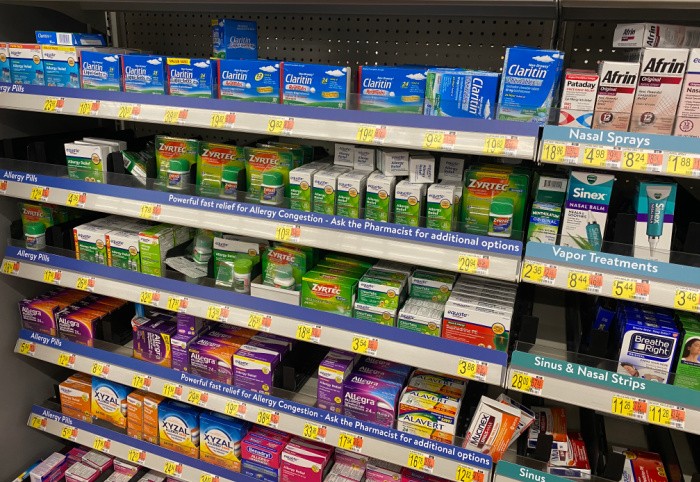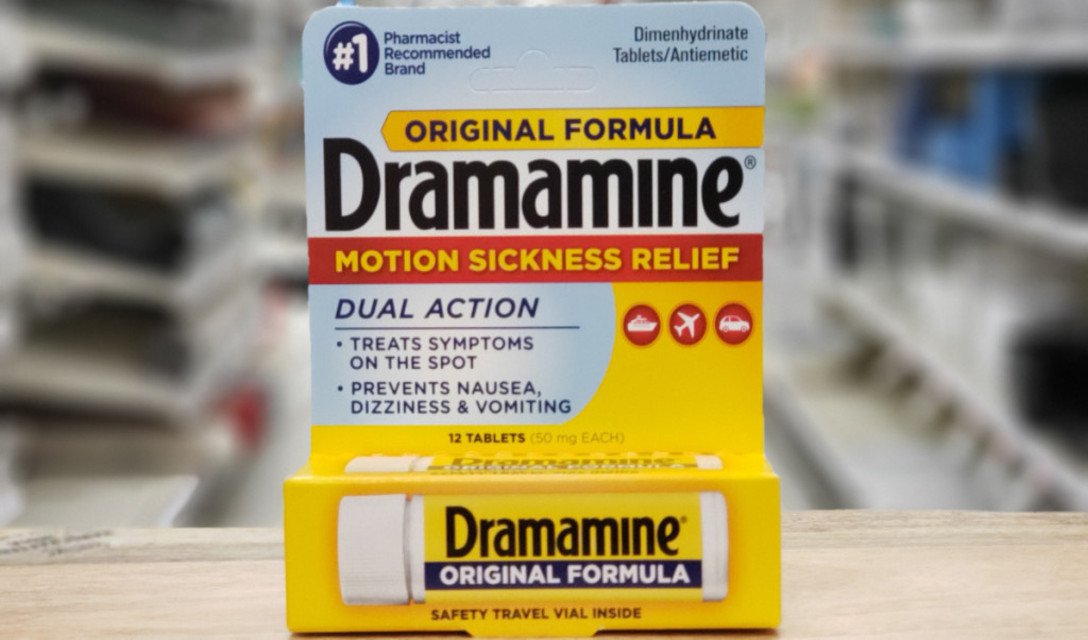In the medical community, advice is to tell patients that “it is never safe to mix alcohol and Dramamine simultaneously.” It can intensify the effects of the sedating effects of the alcohol and put the individual at risk of overdosing on the medication.
The antihistamine is meant to relieve the symptoms associated with motion sickness. Variables such as age, current meds, and response to treatment will determine individual use and dose. The adverse effects that can accompany usage include:
- Serious drowsiness
- Irregular heartbeat
- Dilated pupils
- Vomiting
- Impaired coordination
A doctor’s consultation and diagnosis are recommended for a sound diagnosis and prescription for associated symptoms of motion sickness.
Table of Contents
ToggleEffects Of Drinking While On Dramamine
Alcohol Use when on Dramamine can vary for each person, but the effect can be dangerous when consuming these simultaneously. Some risks include:
- Alcohol has the potential to affect the way Dramamine reacts in the body. It can inversely also affect the way you feel when consuming the beverages.
- Alcohol can often cause worsening of the adverse effects of Dramamine.
- When overindulging in alcohol with Dramamine, there is a heightened risk of alcohol poisoning and medication overdose.
According to health professionals, these circumstances are worst-case when consuming dramamine and alcohol together at the same time, when Dramamine is used in a prescription capacity. Let’s look at using Dramamine in the morning after a night of heavy drinking.
Can Dramamine Be Used Following A Night Of Heavy Drinking?
Dramamine contains roughly 500 kg of ginger, best known for resolving stomach issues, including nausea. The substance also consists of dimenhydrinate, an active ingredient that suppresses the nerve impulses in the GI tract leading to vomiting to reduce nausea and urge to vomit.
Taking it at the same time or with alcohol can be harmful, increasing the sedating effect but taking one the following day has the potential to help with nausea.
Over-The-Counter Remedies That Can Help With Hangovers

Little scientific evidence supports OTC products’ efficacy as a quick cure for a hangover, including Dramamine. Hangovers are the adverse results of having the psychoactive element ethanol, a primary ingredient in alcohol.
The common symptoms associated with consuming this substance are “lethargy, muscle aches, headache, nausea, malaise. How long these last will vary from person to person. Dehydration and the impurities in certain alcohol contribute to the feelings of a hangover.
There are several OTC methods people try in an effort to remedy hangovers, with Dramamine becoming one of the favored options. It’s not backed by science, but the Court of public opinion ranks it as an effective remedy when taken the day after a night of drinking. Let’s look at other OTCs often used for the self-treatment of hangovers.
Activated charcoal
Activated charcoal is marketed as a prevention or treatment for hangovers, usually consisting of capsules that individuals take prior to a night of drinking. The claim by manufacturers is that the ingredient absorbs the “congeners” that cause the hangover.
There’s no scientific evidence or research to back the claims that activated charcoal can do anything to assist with a hangover’s severity or reduce its duration.
Dihydromyricetin
Dihydromyricetin is an herbal substance also marketed as a hangover cure. Claims suggest the compound has anti-inflammatory properties, which have been studied primarily in rodent studies showing it as effective. (1)
There haven’t been studies or research on humans for effects on hangovers, but people use it in this context and boast of its success.
Caffeine
Many people will consume caffeine when dealing with a hangover, often coffee. The idea is that the stimulant will help with the headache and resultant lethargy. Caffeine boasts of the capacity to assist with the symptoms associated with a headache following drinking, anecdotally speaking.
Scientific evidence is lacking to back up the public reports of the efficacy of caffeine consumption for a hangover.
N-acetylcysteine
Protein-rich foods contain this amino acid, and it can be found in capsules at pharmacies or health food shops. The substance boasts of being more of a protective compound than a cure for a hangover. It boasts of “supporting efficient alcohol metabolism while helping to decrease oxidative damage to the system.”
Vitamins
The suggestion is that alcohol depletes the body of nutrients since it induces diuresis. Supplementing these vitamins is wise to ensure you’re not deficient, creating a major issue for your body, but that doesn’t mean that the supplements will in any way assist with the symptoms associated with a hangover.
No scientific evidence or anecdotal reports suggest vitamins reduce the symptoms. Still, some people take these to restore what’s been lost due to overindulgence of the beverage.
NSAIDs
Naproxen, ibuprofen, and aspirin are anti-inflammatory NSAIDs, nonsteroidal pharmaceuticals usually effective for alleviating symptoms of muscle and headaches. Most people will take these when enduring hangover-related symptoms.
While these do appear to be effective anecdotally and are a staple for many with hangovers, they are also harsh pharmaceuticals on the stomach. There is the potential for worsening nausea, stomachaches, and gastritis for some people with sensitivity to the medicine.
Conclusion
Everyone has a favored hangover remedy that works for them. A lot of people are of the mindset that Dramamine (the morning after alcohol consumption) is anecdotally an effective OTC remedy, particularly considering its capacity to reduce nausea as a motion sickness drug.
It’s a slippery slope; taking Dramamine with alcohol is not recommended by health professionals. The two together result in adverse reactions, strengthening the response from the other, and making them worse, resulting in potentially hazardous symptoms.
Before indulging in any self-directed remedy for a hangover or attempting to prevent one before a night of heavy drinking, reaching out to a healthcare provider familiar with your medical history who can advise potential preventives and solutions following a night of overindulging is wise.

I am a passionate beer connoisseur with a deep appreciation for the art and science of brewing. With years of experience tasting and evaluating various beers, I love to share my opinions and insights with others and I am always eager to engage in lively discussions about my favorite beverage.
















